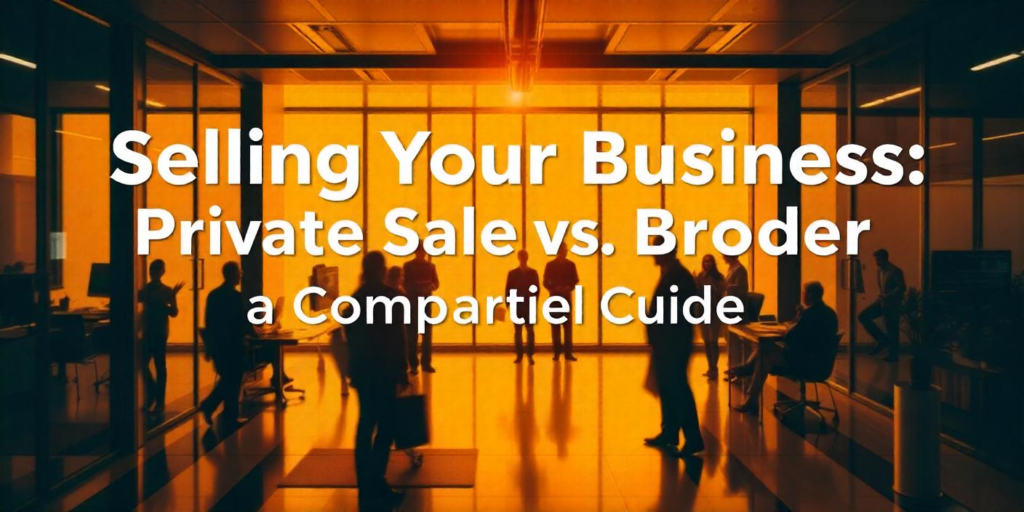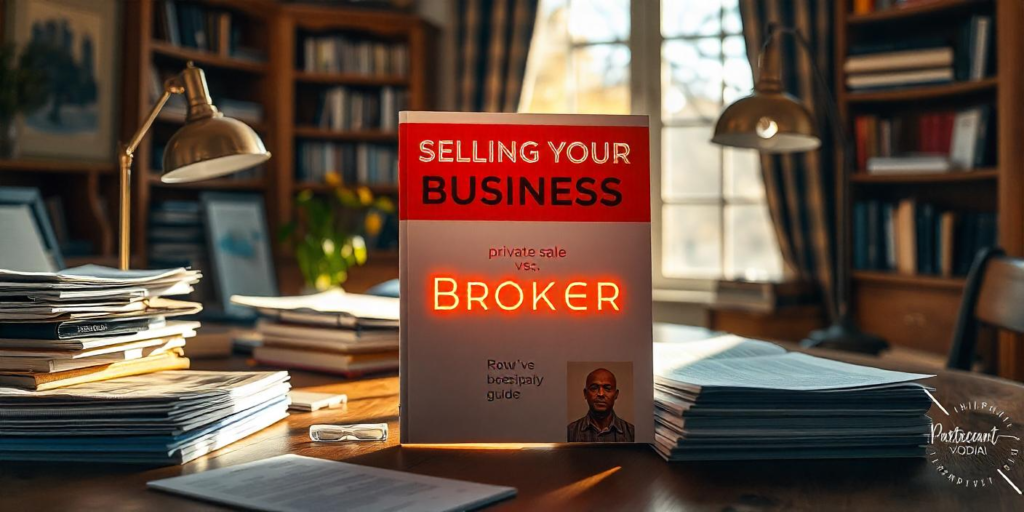Selling Your business is a significant decision that requires careful planning and strategic execution. Business owners often face a crucial choice: Should they sell their business privately or through a business broker? Each approach has its own advantages and drawbacks, and understanding these differences can help business owners make an informed decision that best suits their needs.
Read Also – Sell Your Business Successfully: A Complete Guide for Entrepreneurs

Understanding Private Business Sales
A private business sale refers to a situation where the owner takes full control of the sale process without involving an intermediary. This approach is often favored by business owners who want complete autonomy over negotiations and transactions.
Advantages of Selling Your Business Privately
- No Commission Fees – Selling a business privately means the owner does not have to pay a broker’s commission, which can range from 5% to 10% of the sale price.
- Full Control Over the Process – Owners manage all aspects of the sale, including pricing, negotiations, and closing, ensuring that every detail aligns with their expectations.
- Direct Interaction with Buyers – Private sales allow owners to communicate directly with potential buyers, which can lead to better transparency and mutual understanding.
- Flexibility in Deal Structuring – Without a third party involved, owners can tailor the terms of the sale to better suit their financial goals and business legacy.
- Confidentiality – Selling privately may help in maintaining discretion, preventing competitors, employees, and suppliers from learning about the sale too early.
Disadvantages of Private Business Sales
- Time-Consuming – Owners must handle all aspects of the sale, from marketing to due diligence, which can be overwhelming.
- Limited Market Reach – Without a broker’s network, finding the right buyers can be challenging and may result in a longer selling period.
- Lack of Expertise – Business owners may not have the experience to accurately value their business, negotiate effectively, or manage legal and financial aspects.
- Emotional Involvement – Owners may struggle to remain objective during negotiations, potentially leading to suboptimal deals.
Understanding Business Sales Through a Broker
A business broker acts as an intermediary between the seller and potential buyers. They specialize in business sales, bringing expertise, industry knowledge, and a network of prospective buyers.
Advantages of Selling Your Business Through a Broker
- Access to a Wider Pool of Buyers – Brokers have extensive networks and databases of potential buyers, increasing the likelihood of a quicker sale.
- Accurate Business Valuation – Brokers conduct professional business valuations, ensuring that the business is priced competitively and fairly.
- Negotiation Expertise – Brokers bring experience in negotiating deals, often securing better terms and maximizing the seller’s profit.
- Time Savings – The broker handles marketing, vetting buyers, and managing paperwork, allowing the owner to focus on running the business until the sale is completed.
- Confidentiality and Professionalism – Brokers have processes in place to maintain confidentiality, preventing sensitive business information from reaching competitors or employees prematurely.

Disadvantages of Selling Through a Broker
- Commission Fees – Brokers charge commissions, usually a percentage of the sale price, which can reduce the seller’s final earnings.
- Less Direct Control – Business owners may have to rely on the broker’s strategies and decisions throughout the process.
- Potential Conflicts of Interest – Some brokers prioritize quick sales over securing the best possible deal for the seller.
- Dependency on Broker’s Performance – A broker’s effectiveness and market knowledge significantly impact the success of the sale.
Key Factors to Consider When Choosing Between Private Sale and Broker-Assisted Sale
- Business Size and Complexity – Larger and more complex businesses often benefit from a broker’s expertise, while smaller businesses may be easier to sell privately.
- Seller’s Experience and Resources – If the owner has experience in business sales and access to potential buyers, a private sale might be more viable.
- Time Availability – If the owner is still managing day-to-day operations, outsourcing the sale to a broker can save valuable time.
- Confidentiality Needs – If secrecy is a priority, a broker’s structured processes may be more effective in maintaining discretion.
- Financial Considerations – Avoiding broker fees can be beneficial, but a broker might secure a higher selling price, offsetting the commission costs.
Which Option is More Beneficial?
Ultimately, the decision depends on the specific circumstances of the business and the seller’s priorities. A private sale is a cost-effective option for those with strong industry connections, experience in negotiations, and time to manage the sale process. On the other hand, working with a broker can simplify the process, provide access to more buyers, and increase the chances of securing a profitable deal.
For business owners unsure about the best approach, consulting with industry experts or conducting a hybrid approach—where an owner initially attempts a private sale but turns to a broker if challenges arise—can be a strategic way forward.
No matter the method chosen, selling a business is a significant endeavor that requires careful planning, thorough market research, and strategic execution. Understanding the pros and cons of private sales and broker-assisted sales can empower sellers to make the best decision for their business’s future.
Visit Tobuz.com for comprehensive listings of businesses for sale in the UAE, along with expert guidance tailored to your needs.






